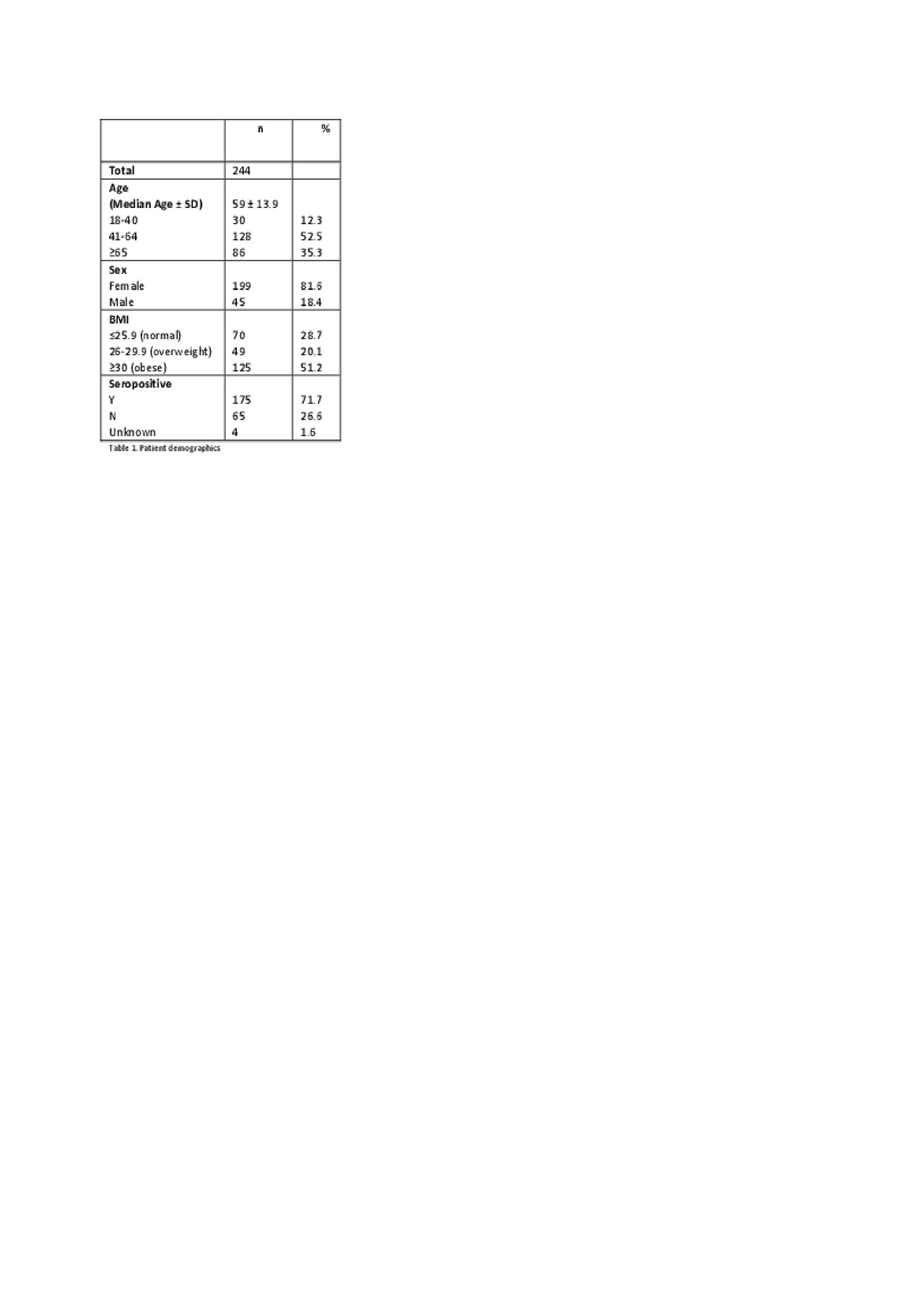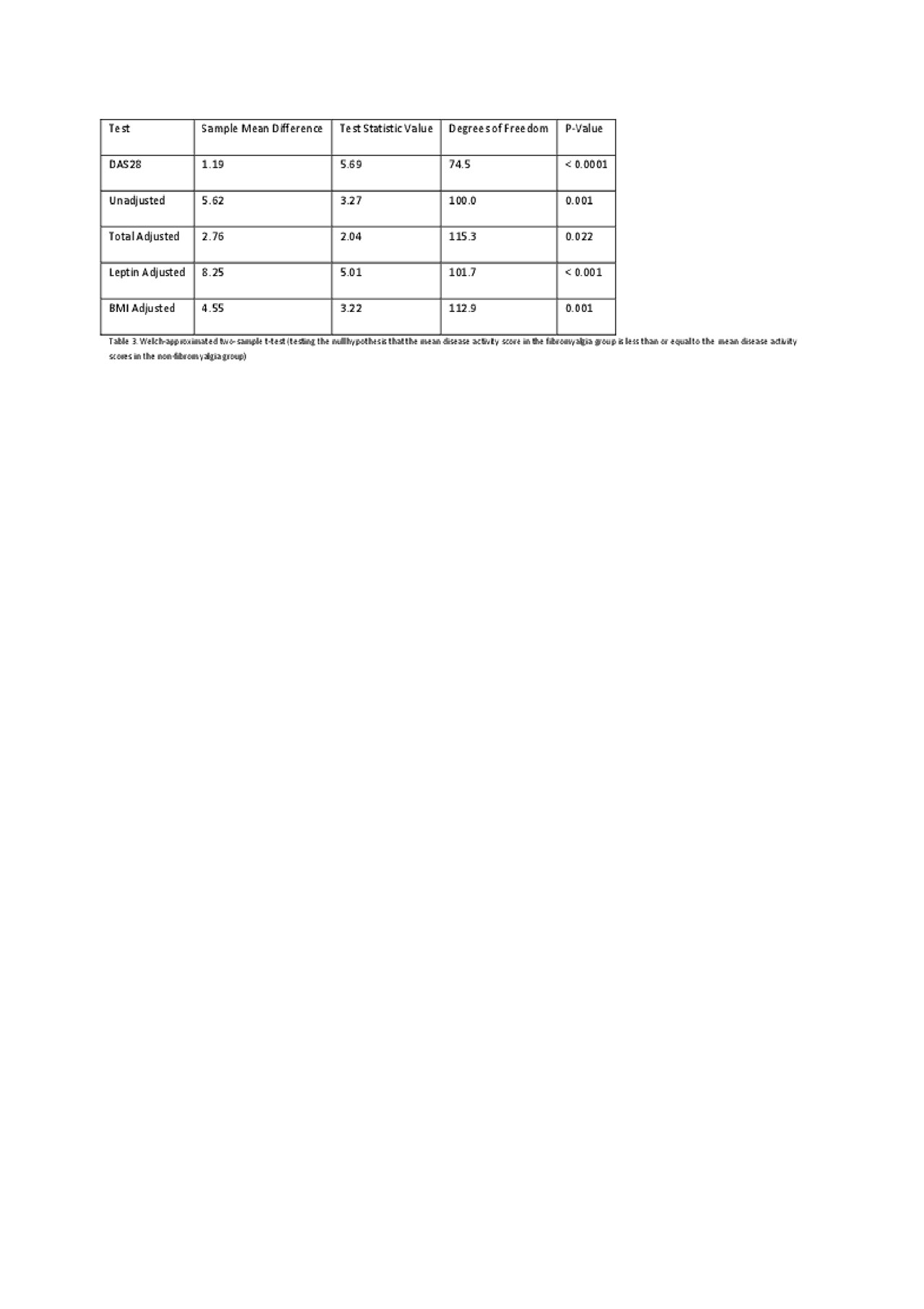Session Information
Date: Monday, November 11, 2019
Title: RA – Diagnosis, Manifestations, & Outcomes Poster II: Treatments, Outcomes, & Measures
Session Type: Poster Session (Monday)
Session Time: 9:00AM-11:00AM
Background/Purpose: The goal for treatment of RA is to obtain low disease activity for better outcomes. In order to achieve low disease activity, it is important to have an accurate way to measure disease activity. Historically, RA disease activity has been measured by scoring systems. The disease activity score in 28 joints (or DAS-28) is one of the most popular measurement tools for disease activity in RA. DAS-28 includes subjective measures of disease activity. Some patients, especially those with co-morbidities such as fibromyalgia, might have higher subjective disease activity than others. Recently, more objective measurements of RA disease activity have been popularized. MBDA (or Vectra DA) is one of these objective measures of disease activity. It uses 12 biomarkers to calculate a disease activity score. Some of the biomarkers included in the MBDA (leptin, CRP and IL-6) can be higher in obese patients. The aim of this study is to study the effects of obesity on MBDA.
Methods: Charts of 244 patients with RA seen by WellStar Medical Group (WMG) rheumatology between January 1, 2014 and April 1, 2019 who had MBDA testing were retrospectively reviewed for this study. MBDA score was compared to DAS-28 score (based on physician notes from the same visit as when Vectra DA lab was drawn) in patients with normal, overweight and obese BMIs.
Results: Adjusted MBDA scores agreed more closely with disease severity (low, moderate or high) by DAS-28 scoring than unadjusted MBDA scores. Still, only 84 of 244 total adjusted MBDA scores agreed with DAS-28 disease activity scores. BMI-adjusted MBDA scores are most closely correlated with DAS-28 scores and this correlation is most apparent in overweight patients (κ = 0.207, 95% CI [0.019,0.394]). However, using a regression equation (DAS28= 1.261 + 0.043 x Leptin-adjusted score – 0.011 x BMI-adjusted score) DAS-28 scores seem to correlate more closely with MBDA scores. MBDA scores tended to show higher levels of disease activity overall than DAS-28 scores (see Table 2). In Fibromyalgia patients, mean disease activity scores were higher than in patients without Fibromyalgia in both DAS-28 and MBDA scoring systems (see Table 3).
Conclusion: MBDA scores may be adversely affected by obesity. A prospective randomized controlled study in a bigger cohort of patients is needed to further investigate this correlation.
To cite this abstract in AMA style:
Ross Y, Siddhanthi M, VanBrackle L, Carpenter D, Rallabhandy A, Kamran M. Affect of Obesity on Multi-Biomarker Disease Activity (MBDA) Measurements in Rheumatoid Arthritis (RA) Patients [abstract]. Arthritis Rheumatol. 2019; 71 (suppl 10). https://acrabstracts.org/abstract/affect-of-obesity-on-multi-biomarker-disease-activity-mbda-measurements-in-rheumatoid-arthritis-ra-patients/. Accessed .« Back to 2019 ACR/ARP Annual Meeting
ACR Meeting Abstracts - https://acrabstracts.org/abstract/affect-of-obesity-on-multi-biomarker-disease-activity-mbda-measurements-in-rheumatoid-arthritis-ra-patients/



